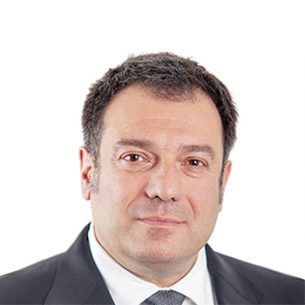Founder Bambos Tsiattalou examines in Fraud Watch the Serious Fraud Office’s autonomy and how its future depends on the forthcoming LIBOR trials.
Bambos’s article was published in Fraud Watch, 15 March 2016, and can be found here.
Rumours of plans by the Home Office to hand organisational control of the Serious Fraud Office (SFO) over to the National Crime Agency (NCA) have fuelled debate as to the rights and wrongs of such a move on its own terms, as well as the broader question of just how effective the SFO has been throughout the whole of its 29-year history.
Although the rumours have been denied by the SFO itself, which released a statement insisting that it ‘is and remains an independent non-ministerial government department under the superintendence of the attorney general’ it wouldn’t be the first time that Home Secretary Theresa May has attempted to bring the SFO under the control of the Home Office.
An attempt to abolish the SFO altogether and subsume its powers into the NCA was made in 2011 but the attorney general at the time, Dominic Grieve, joined forces with cabinet colleagues such as justice secretary Ken Clarke, to force a climb-down. Clarke and Grieve are now long gone, of course, and Ms May perhaps calculates that the more subtle and nuanced approach of placing the SFO under the control of the NCA is more likely to succeed.
Remit
Voices within the SFO, which was established in 1998 with a remit to tackle City scandal, insist that only they have the blend of police manpower, prosecutors and experts such as forensic accountants needed to fight hugely complex cases of economic crime. By its own account, however, the SFO has sometimes fallen short of the standards the government would expect of a body enjoying ‘arm’s length’ status and an unusual degree of independence.
According to its latest annual report, the SFO took 8 cases to trial in 2014-15, up from 5 in 2013-14. Against this improvement, however, has to be contrasted the fact that the conviction rate being achieved by the Office has dropped from 85% to 78%. Of course, the arcane nature of crimes such as Libor rigging means that the SFO is never likely to score anything close to a 100% success rate, but a decline in the strike rate is bound to cause concern, particularly given the funding arrangements enjoyed by the SFO.
Unlike the NCA, which is funded directly from the Home Office, the SFO receives its monies from the attorney general’s office and has the option of applying for extra money over and above its’ core funding in order to pay for so called ‘blockbuster’ cases.
Funding
Every year since 2012 this funding has been applied for and given, at levels which almost matched the core funding itself. This core funding has remained at approximately the £33m level, and in both 2014-15 and 2013-14 the SFO received an additional £24.5m. This January the SFO requested more cash – £21.1m in total with £15.5m being handed over as a matter of urgency – in order, in their words ‘’to cover the cost of significant investigations and the settlement of material liabilities’.
Whilst the funds themselves may seem fairly small in terms of wider government spending, the fairly high profile manner of the way in which they are provided, and the fact that this then provides a clear and easily grasped yardstick via which to measure the effectiveness of the Office, perhaps goes a long way towards explaining why the Home Office might be seeking greater control via the NCA. During the course of its history the SFO has suffered a string of high profile and rather embarrassing setbacks, the latest coming in January of this year with the almost complete failure of the latest Libor trial.
Although the conviction of Tom Hayes in August last year on charges of conspiring to rig the Libor rate – Mr Hayes was sentenced to 14 years for fraud, reduced to 11 on appeal – was seen as something of a triumph for the SFO, the latest trial, of six men who were accused of aiding Mr Hayes, was anything but.
Following a trial at Southwark Crown Court the jury returned not guilty verdicts on all of the charges faced by the defendants. The embarrassing nature of the verdicts was matched, in terms of disastrous PR, by the manner in which they were arrived at; following a trial lasting almost four months the jury took less than two days to deliver near unanimous verdicts on all charges.
The fact that this is by no means the first time that the SFO has tripped up in this manner may make any plans to alter the way in which it is run hard to resist as, indeed, will the funding implications of bringing it under control of the NCA. Indeed, the fact that the SFO is known, in some quarters, as the ‘Seriously Flawed Office’ tends to indicate that the time for a change may be long overdue.
Data loss
In 2013 the SFO admitted to losing confidential data relating to its investigation into BAE and the Al-Yamamah arms deals with Saudi Arabia. The fact that the information – which included 32,000 document pages and 81 audio tapes – was sent to the wrong person and eventually discovered in an East London storage facility which also doubled as a cannabis farm only added to the embarrassment, as did a £180,000 fine. The profile of the SFO, charges of government interference notwithstanding, wasn’t helped by the fact that the case, which was eventually dropped, was pursued by the US Department of Justice, resulting in a plea bargain and BAE paying a fine of US$400m.
The last aspect of the BAE case is echoed in that of the aluminium group Alcoa, which was the subject of a bribery probe by the SFO. Just six weeks after the trial mounted by the SFO collapsed completely in 2013, the company pleaded guilty to bribery in the United States and was fined $223m by the Department of Justice.
Other high profile setbacks in recent years include the prosecution of Vincent and Robert Tchenguiz, property moguls who were arrested in dawn raids in 2011 and who, via civil lawsuits, ended up receiving £3m and £1.5m respectively in damages for wrongful arrest, and the case of an alleged fraud conspiracy centring upon open caste mining in Wales.
Speaking at the latter trial, which took place in 2015, Mr Justice Hickinbottom dismissed the case, ordered the SFO to pay £6m in costs and delivered the following scathing verdict: “This was not simply an error of judgment: once the dismissal application had been formally notified and its essential basis set out, no reasonable prosecutor in the shoes of the SFO would have contested that application in the manner that the SFO in fact did.”
The SFO will continue to look for the support of the politicians, lawyers and other campaigners who have always been keen to ensure that the SFO remains independent from the politicised control of the Home Office. Given the recent and very public failures, there will be concerns that the previous opposition to the SFO being handed over to the NCA may be less vocal. However, David Green’s re-appointment as head has offered a timely and much-needed boost of confidence to the SFO, and the successes in the Tom Hayes trial and the first successfully concluded Deferred Prosecution Agreement (involving CBC Standard Bank PLC) will offer some encouragement.
It is likely that much will hinge on the success or otherwise of the next of the Libor trials (involving Barclays traders) due to start after Easter. A success there will strengthen David Green’s hand, but a failure may prove to be the death knell of his agency’s independence.





